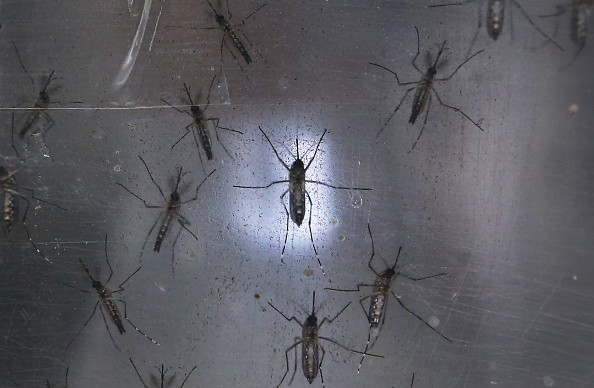A laboratory in southern China is sterilizing mosquitoes in the hopes that it will be more effective in controlling the spread of dengue and the Zika virus in the region than pesticides and medication.
A research facility at Sun Yat-sen University in Guangzhou, the capital of South China's Guangdong, has begun to breed male with the naturally occurring wolbachia bacterium, which sterilizes female mosquitoes, the state-owned Xinhua News Agency reported on Thursday.
If successful, the sterilized mosquitoes can help cut down the mosquito population and, in turn, transmission of mosquito-borne diseases, the report said.
The largest of its kind, the lab covers an area of more than 3,500 square meters and is divided into four sections, with each one capable of raising 5 million male mosquitoes.
The mosquitoes hatch in cages designed so that the males, which are typically smaller than their female counterparts, are able to pass through a filter.
Researchers told Xinhua that the filtering process is currently done by hand, although they are looking into a more efficient automated filtering system.
The adult male mosquitoes, which now carry the wolbachia bacteria, are released at a ratio of five sterile males to each non-sterile male into the wild, giving females an 80-percent chance of mating with them and becoming sterilized.
"Since female mosquitoes only mate once in their lives, we want them to mate with our (wolbachia-carrying) males so the larvae they produce will not hatch," said Xi Zhiyong, research head of the lab's Sterile Insect Technique project.
Approximately 6.5 million male mosquitoes were released at experimented sites in 2015, resulting in a nearly 100-percent reduction of mosquito larvae.
The research team hopes to see the technique gain widespread use within two to three years as an alternative to pesticides, which also harm beneficial insects such as butterflies and bees and have decreased in effectiveness as mosquitoes have begun to develop antibodies.



























